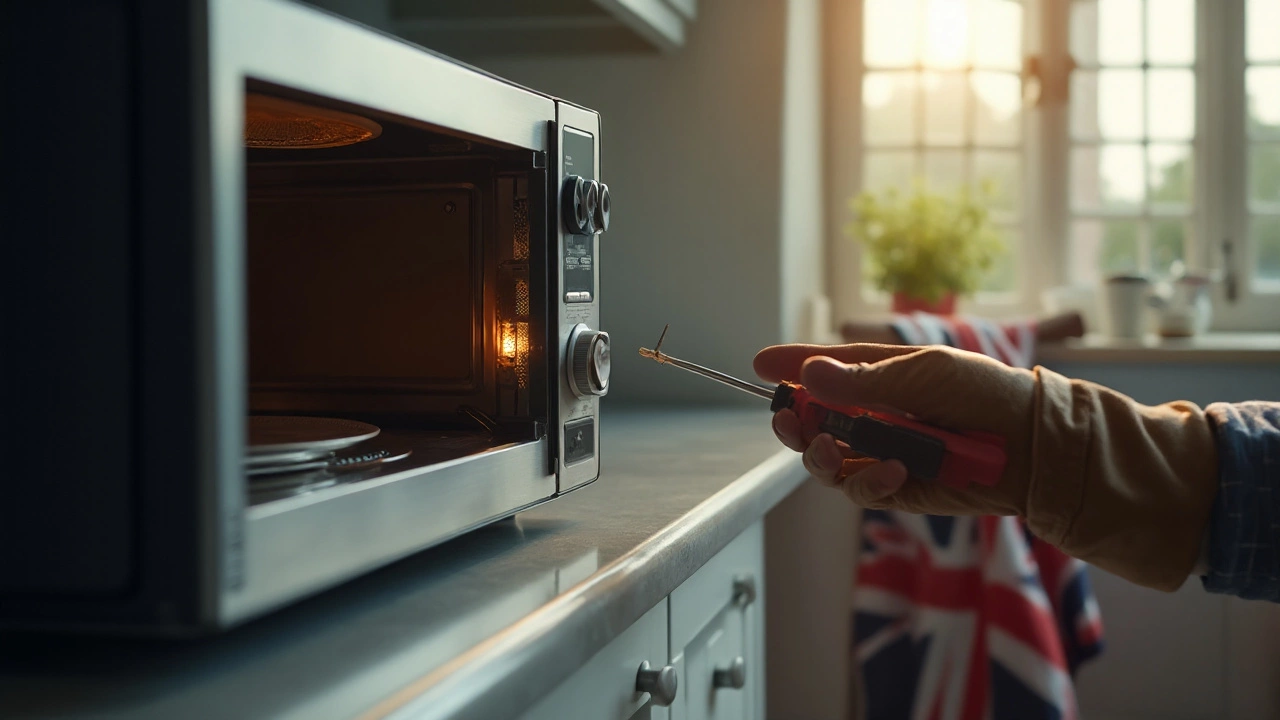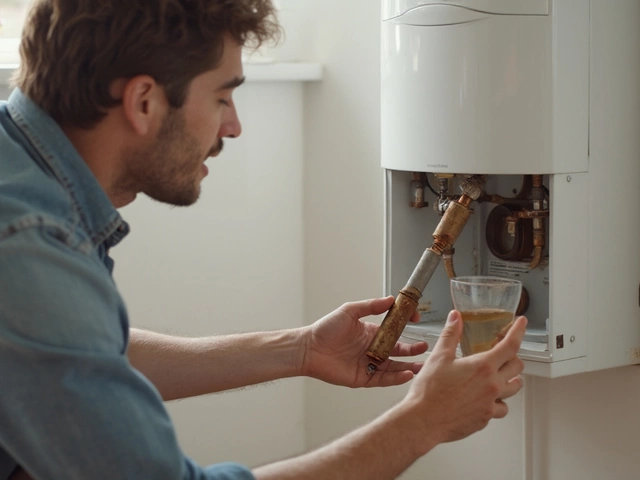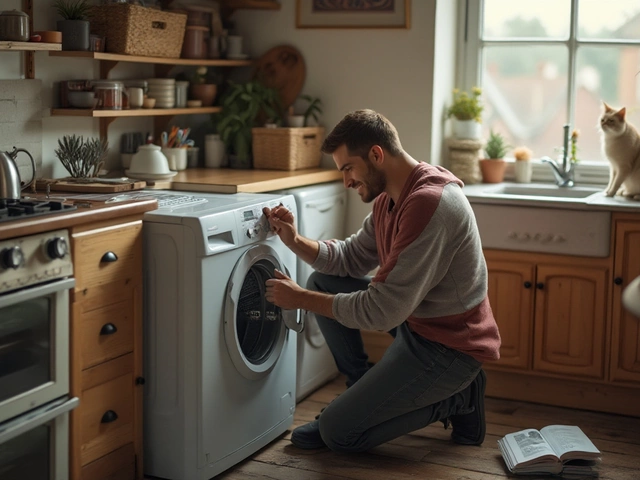Ever put a plate in the microwave and watch it spin forever without heating? Or hear a loud buzz that makes you wonder if it’s about to explode? You’re not alone. Most kitchen microwaves develop a few predictable hiccups, and many of them can be sorted out without calling a technician. In this guide we’ll walk through the biggest culprits, why they happen, and what you can do yourself in just a few minutes.
First up, the microwave not heating. The usual suspects are a failed magnetron, a tripped door switch, or a blown fuse. The magnetron is the heart that creates the microwaves, so if it’s dead the oven still runs but gives you cold food. A door switch that doesn’t click properly will also shut off the heating as a safety measure. Next, strange noises – a humming, clicking, or rattling often means the turntable motor is loose, the fan blades are dirty, or something inside the cavity is hitting the walls. Finally, error codes on the display are the microwave’s way of telling you it’s confused; most codes point to a temperature sensor, a control board glitch, or a power surge.
Start with the easy stuff. Unplug the unit, wait a minute, then plug it back in – a quick reset can clear a temporary glitch. Check the door latch; make sure it closes firmly and the latch pin isn’t bent. If the microwave still won’t heat, locate the fuse (usually a small glass tube near the power cord) and replace it with the same amperage. For a noisy turntable, pull it out, clean any food debris, and tighten the roller guide. If the motor sounds gritty, give the motor shaft a few drops of lightweight oil and spin it by hand – it should move smoothly.
When the magnetron is the problem, you’ll need a new part and a bit more confidence. Disconnect power, remove the outer cabinet, and locate the metal box with two thick wires – that’s the magnetron. Swap it with an exact match (same wattage and size) and re‑assemble. If you see a burnt smell or visible damage on the magnetron, it’s definitely the culprit. For error codes, refer to the microwave’s manual; most brands list what each code means. Often you can reset the code by holding the “Start” button for 5 seconds or by unplugging the unit for a couple of minutes.
Know when to stop. If you’ve checked the fuse, door switch, and cleaned the interior but the microwave still won’t heat, it’s time to call a professional. Magnetron replacements involve high voltage components that can be dangerous if mishandled. Also, if the control board is flashing error codes repeatedly, a trained technician can diagnose the fault safely. Trust your gut – if anything feels risky, let a qualified repair service take over.
Keeping your microwave in top shape is mostly about regular cleaning and avoiding metal inside. Wipe down the interior after each use, clean the turntable and rollers, and never heat sealed containers. A quick monthly check of the door latch and fuse can catch issues before they turn into costly repairs. With these tips, you’ll spend less time staring at a cold plate and more time enjoying hot leftovers.

Learn fast how to spot a blown microwave fuse, test it safely, and replace it yourself. Step‑by‑step instructions, tools needed, and common pitfalls covered.

Wondering if you can fix your microwave at home instead of tossing it and buying a new one? This article breaks down common microwave problems, what you can safely handle, and when it's better to call a pro. Get practical tips that actually make a difference, plus real talk about microwave safety. Save yourself time, money, and stress with easy-to-follow advice. Tackling your appliance repair just got a whole lot simpler.

Not sure if your water heater's anode rod is shot? This article breaks down the telltale signs that your anode rod is past its prime, from weird smells to rusty water. Find out how long these rods actually last, why they're so important, and how to check them yourself. With some simple tips, you'll spot trouble before it wrecks your tank. Get the facts so you can keep hot water flowing without a nasty surprise.

Experiencing a sudden loss of hot water can be inconvenient and potentially alarming. Understanding common reasons for this issue, such as thermostat malfunctions or a broken heating element, can help you troubleshoot the problem. Sometimes the solution is as simple as relighting the pilot light or adjusting the thermostat settings. For more complex issues, professional repair might be necessary. This article provides insightful tips and practical information to help you get your hot water flowing again.

Extractor fan acting up? If you’re wondering who handles extractor fan replacement, this article breaks it down. Learn the difference between calling a pro and tackling it yourself, get tips on when to fix or swap out a fan, and find out what skills and tools make the job smooth. Real, practical advice from someone who's been around finicky fans and quick fixes. Don’t let poor ventilation keep bothering you—get the facts and decide what works best.

Repairing a washing machine yourself can save time and money, and it's not as difficult as one might think. This article covers the basic steps for diagnosing common issues, tools required for repairs, and safety tips to consider. Whether it's a noisy drum or a leaking gasket, we guide you through essential troubleshooting techniques. Learn how to tackle minor fixes and decide when to seek professional help.

Explore the practical steps in diagnosing and fixing common issues with kitchen extractor fans. Learn about the signs your fan might need repair, and gather essential maintenance tips to extend its life. Whether you're a DIY enthusiast or considering professional help, this guide provides valuable insights for restoring your kitchen ventilation system to optimal performance. Discover how regular upkeep can prevent costly replacements.